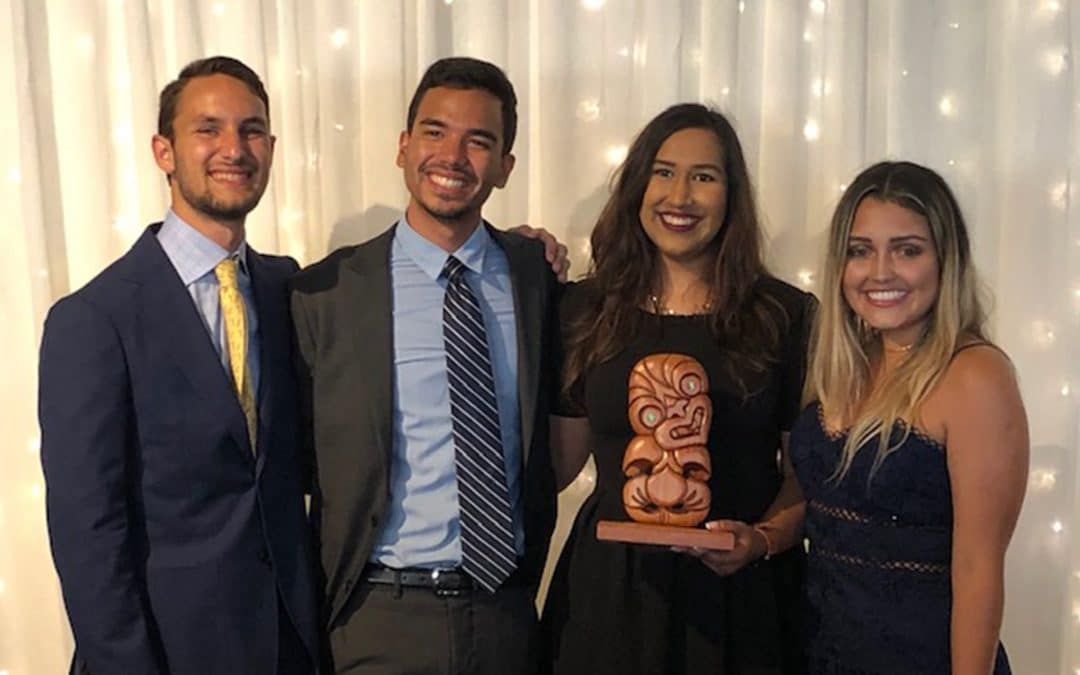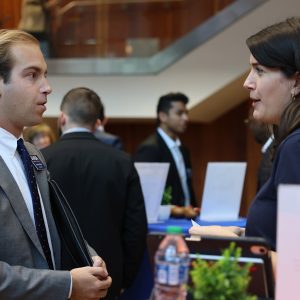Heavener School wins 2020 Champions Trophy
Four Heavener students won the Champions Trophy Case Competition from January 26-February 1 in Auckland, New Zealand. The Champions Trophy Case Competition is the culmination of the competition season and is invite-only for schools that have won or shown a high level of consistency during qualifying events.
The Heavener team won the event for the third time in the last six years, defeating international case competition powers like Queen’s University, National University of Singapore, American University of Beirut and Indiana University in the finals. It was also Heavener’s fourth time in the finals over the last six years, and it moves into a tie with the University of British Columbia for the most all-time Champions Trophy wins.
Alexis Figueroa, Shreya Dundigalla, Ryan Engelsberg and Valentina Rendon made up the team of Heavener students who won their divisional rounds from Wednesday to Friday before advancing to Saturday’s final round. The final case was about a non-profit company for the first time in the history of the event.
However, the team was well prepared. Dr. M. Sean Limon, Head Coach for the Heavener International Case Competition team, made sure the group was ready to handle a non-profit case during their preparation for the event.
“I train them to make it clear how you’re putting sweaters on puppies,” Limon said with a smile. “Non-profits are unique because they’re focused more on the mission and less about finances. The focus is how to help people, not how to make money. You have to share how to better accomplish their mission.”
For LandSAR, the New Zealand-based company that was the focus of the case, the mission is saving lives through land search and rescue services. The four-person Heavener team prioritized the company’s mission throughout their presentation, even when financial lead Ryan Engelsberg spoke about the company’s financial situation.
Alexis Figueroa served as the team leader after being part of Heavener’s case competition program for almost two years. His leadership was an important since the other three students were participating in their first competition.
“This team did well with their messaging,” Limon said. “They had good ideas, but they messaged it very well. It was clear and concise. Their answers to judge’s questions during the division rounds were excellent, but they took it to another level during the final round. This was four students operating and working as a team.”
The Champions Trophy win concluded a strong year for Heavener teams. They also finished in second place at the Maastricht Case Competition and the Thammasat Undergraduate Business Challenge. They finished third at the John Molson Undergraduate Case Competition and were a finalist at the Belgrade Competition.




